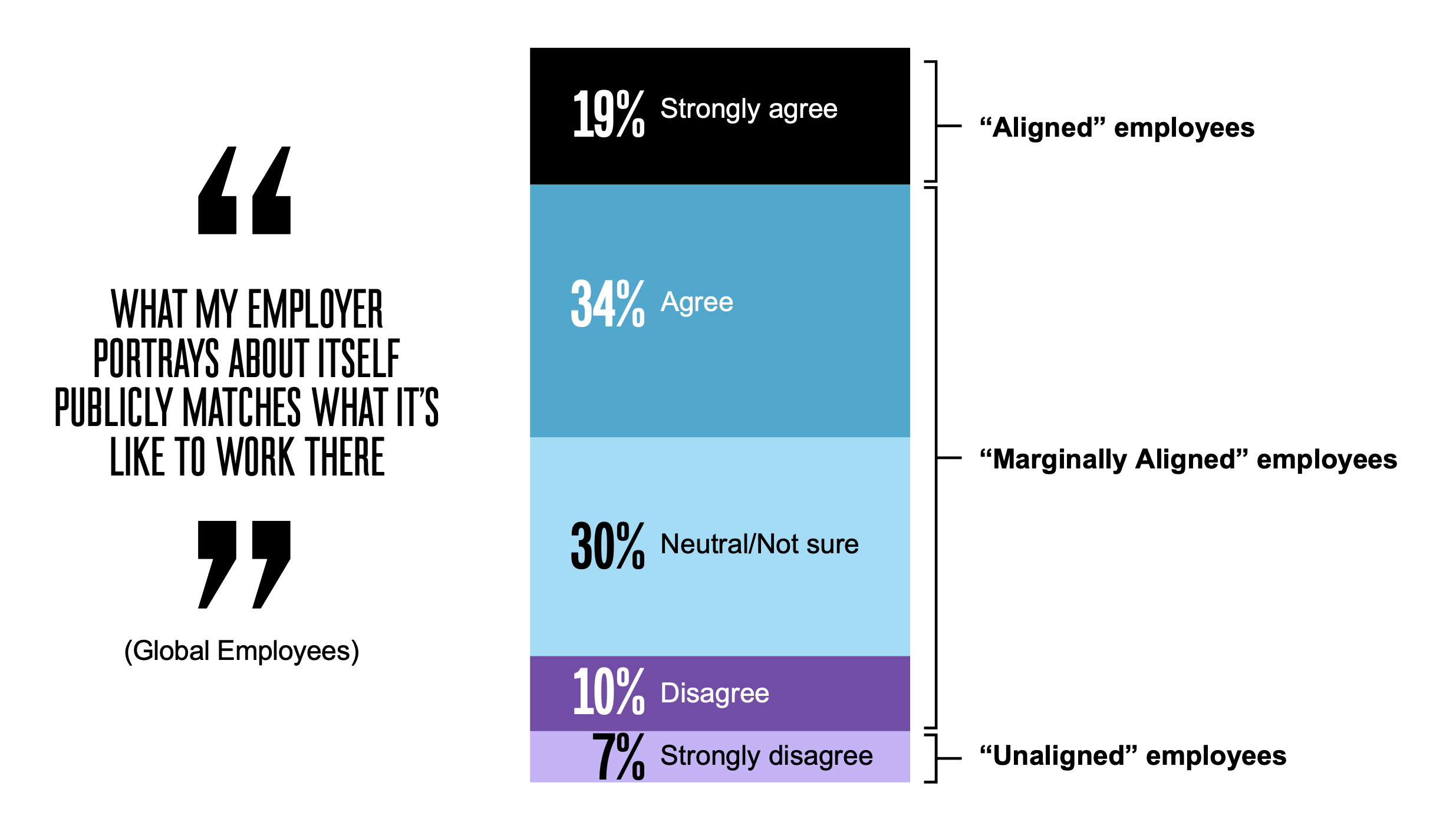How to Combat the Great Resignation
Retaining and attracting talent by making the most of your employer brand
As the workplace evolves, “The Great Resignation” is keeping many leaders up at night. In October alone, more than 4.2 million people left their jobs (U.S. Bureau of Labor Statistics). Marketers could say, “that’s an HR problem,” since they may not have control over major factors like compensation, benefits, and even culture. Or marketers could step up to play a critical role within this challenge. Here are a few strategies to build a unique employer brand that serves existing employees and attracts new ones when it matters most.
REVEAL AN AUTHENTIC REFLECTION OF YOUR COMPANY
In the quest to make employees happy and recruit the best talent, many businesses fall into the trap of parroting generic qualities about their company––based on what they think people want to hear––even if they aren’t accurate. But, employees see right through that. A global study by Weber Shandwick found that only 19% of nearly 2,000 employees feel strongly that the work experience their employer publicly promotes reflects reality.

How can you bridge that gap? It’s more simple than you think. The truth is, the majority of your employees aren’t leaving––and they’re at your company for a reason. Only “12% of employees put a lot of trust in what employers say about themselves,” so let your workers do the talking (Weber Shandwick). Look inward at your fulfilled employees, listen to them, and uncover why they love working there. These employee experiences become the basis for an authentic, differentiated employer brand that helps you not only recruit the best talent, but also boost employee morale. Sullivan helped an investment firm do just that. When they were struggling to attract the right tech talent, we helped them shift perceptions through a new angle. Instead of trying to make the financial services category more attractive to prospects, we focused on what their employees get excited about every day: employing vast data sets that span well beyond the financial markets to predict the future. And who doesn’t want to predict the future? When your employer brand highlights the reasons your current employees love your company, you’ll notice they rally behind it––wearing it like a badge of honor.
DON’T FIGHT YOUR REPUTATION, EMBRACE IT
Your company’s reputation isn’t something you can ignore. If it’s positive, leaning into it is a no-brainer. If it’s less than stellar, that doesn’t necessarily mean you don’t have the basis for a strong employer brand ––it could just mean that your company is a polarizing choice. And all marketers know that it’s important to clearly define who you’re selling to and who you’re not. For example, Meta (previously Facebook) has received public backlash for gathering huge amounts of personal data, but that same quality is what makes them attractive to a lot of engineers and tech talent. Data is what feeds their ability to create interesting products and features for Meta’s communities. Similarly, an asset management firm we worked with had a reputation for having a “churn and burn” culture. Sullivan helped uncover the truth: the company has clear, measurable expectations. For those who can meet them, they’re given the autonomy they crave and co-workers who are equally on top of their game. While that kind of culture is not necessarily a fit for everyone, the ones who love it, love it. Being polarizing is okay––it actually helps to differentiate your company and recruit employees who will be successful members of your team.
LOOK TO YOUR EMPLOYEES AS A MARKETING TARGET
If you’re really serious about combatting resignations, you need to recognize that your current employees are also part of your marketing audience. In today’s highly competitive job market, where turnover is always a concern, all employees need ongoing attention. Marketers often map out their customers’ experience, but what about the employee experience? Once you have an employer brand in place, you can look across the employee experience and identify where you are delivering on the promise, and where you may be falling short. Identify where messaging can support positive experiences and execute the right communications at the right time in an employee’s journey. And, most importantly, continue to reinforce your company’s unique value proposition from the time a new hire joins, all the way through their employment.
IN SHORT
Give your employer brand the attention it deserves, build it from a place of authenticity, and deliver on it with your current employees. Once you do, you’re bound to see less of your existing talent leaving and more of your ideal candidates clamoring to work with your business. Armed with a distinctive employer brand, you can navigate through “The Great Resignation” and become an even stronger company.


